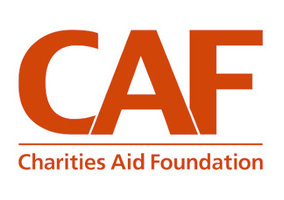Charities around the world are struggling to recruit and retain staff, according to new research, while leaders in poorer countries are more likely to be optimistic despite facing greater challenges.
The Charities Aid Foundation (CAF) surveyed more than 3,000 charity leaders in 27 countries and found that most were finding it challenging to recruit the right employees.
Some 69% of respondents from high-income countries such as the UK reported facing a recruitment challenge, with a greater proportion from lower-income nations reporting the same.
Staff retention and managing employee wellbeing were both reported as a challenge by 40% of charity leaders from high-income countries, while over 60% of those from lower-income nations said the same.
Meanwhile, more leaders of African charities said they found it easy to recruit (74%) and retain (66%) volunteers, compared to those working in other continents.
A third of European charity leaders said they found volunteer recruitment easy while one in eight said securing and maintaining volunteer engagement was one of their top challenges.
Global funding challenge
CAF’s charity insights from its World Giving Report, which follows the publication of its donor insights earlier this year, found that organisations in high-income countries enjoy around 50% more unrestricted funding than those in lower-income countries.
On average, unrestricted funding makes up 28% of charities’ income in low-income countries, CAF found, compared to 40% for charities operating in high-income countries.
Charities in high-income countries were more likely to have a broader funding base, with 4.1 sources of income on average, compared to those in lower-income countries (3.4 sources).
Most lower-income charity leaders (59%) reported that demand for services had increased a lot over the past year, compared to 44% of those in high-income countries.
However, charities in lower-income countries were more likely to say the sector in their country was healthy (81%) compared to 65% of those in higher-income countries.
Optimism was highest among charities surveyed in lower-income countries, particularly in Africa, where 55% of charity leaders said they were “very optimistic” for the future of their organisation compared to 15% of those in Europe.
Government influence was seen most positively by charity leaders in the Asia-Pacific region (32%) and Africa (28%), compared to low levels in South America (8%) and Europe (6%).
CAF: We need to rethink charity support
Reflecting on the findings, CAF chief executive Neil Heslop said: “As in the UK, funding is the most pervasive challenge for charities around the world.
“And with ongoing and escalating social division, conflicts, climate change impacts and huge numbers of people displaced, charities that are relied on to offer relief are particularly affected by increasing demand for their services – such as those working in health, poverty alleviation and humanitarian aid.
“While our research shows there is a thriving culture of giving in many places, we clearly need to think differently about how to support non-profits, particularly given the ongoing reductions in government aid and development spending.
“Encouraging collaboration between charities, and partnerships with government, businesses, and local networks is increasingly critical to build resilience in charities with better outcomes for communities.”












